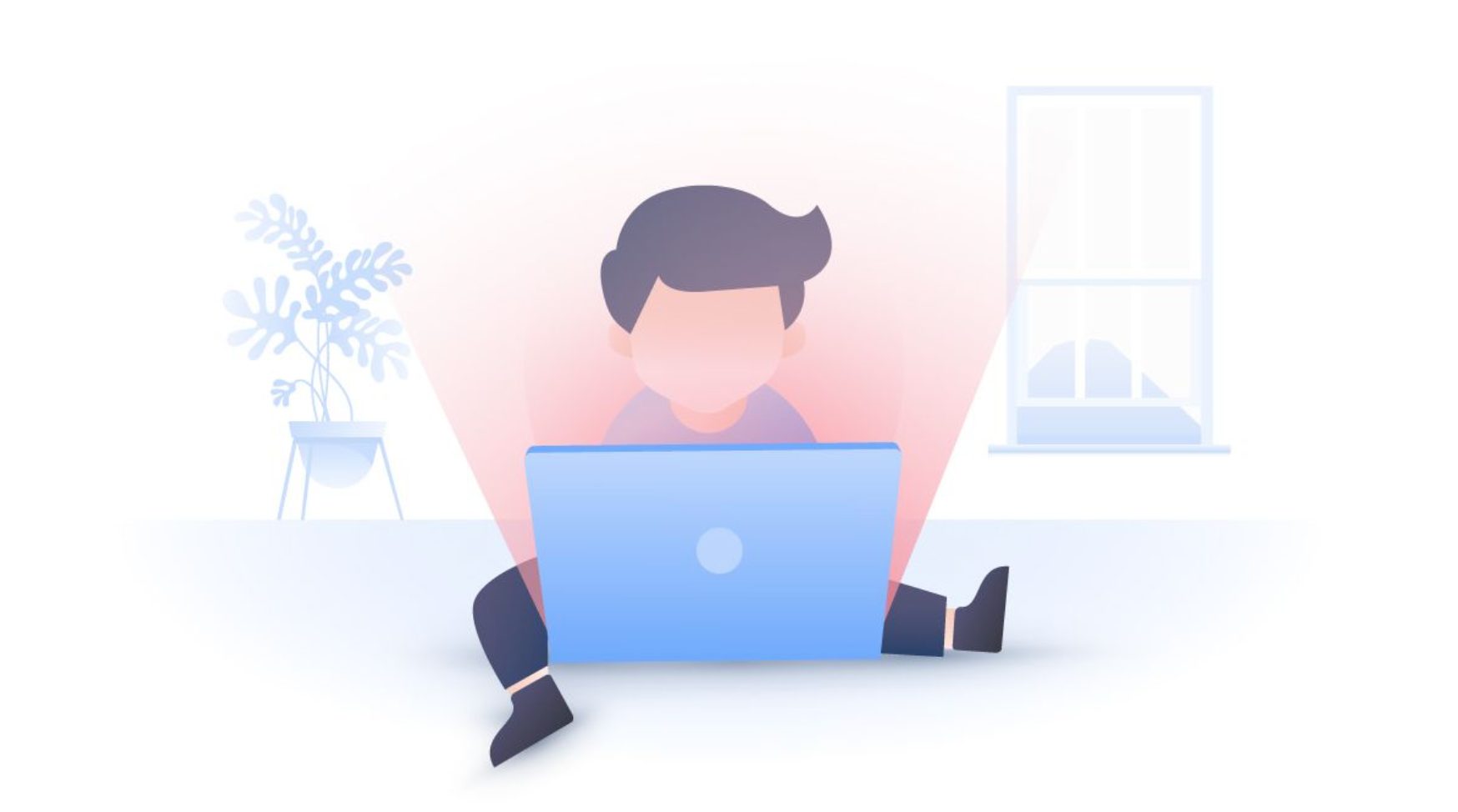How to keep teenagers safe on the internet
Teaching teenagers about online risks should be on every parent’s to-do list. Yet no one wants to sound patronizing. What is the best strategy for talking to your kids? And what should you know about internet safety for teenagers?
Table of Contents
Table of Contents
Why internet safety matters
Teenagers are inseparable from digital technologies. First, the internet provides a gazillion ways for a teen to express themselves — via social networking sites, online games, discussion forums, and dating apps. Furthermore, kids can use digital technologies to search for physical or mental health support.
However, while the internet is sometimes a helpful and entertaining place, it can be harmful, too. Knowing what dangers await online is the first and most crucial step toward a safer digital presence.
Top online threats and risks for teens
To fight your enemies (or help your teenager avoid them), you need to be able to recognize them first. Let’s discuss the most common types of online danger.
Cyberbullying
Young people tend to pick on one another, and this is sadly a widespread phenomenon, especially at school. Yet the abuse doesn’t necessarily stop once they leave school grounds. It can continue online.
Bullying in the form of social media messages, emails, and texts can invade your teenager’s peace of mind. This is also why TikTok is dangerous for kids. Parents are often concerned that it’s a platform where such bullying can be rampant and public.
Cyberbullying has different forms — from posting, sending, or sharing harmful and false content about someone to exposing their private information to cause humiliation. Dealing online with harassment can seriously affect a teenager’s mental health.
Sexting
While exchanging private photos or suggestive banter can sound romantic, it could result in trouble. Once your teenager sends someone a sext message or a picture, they lose control of its distribution. Innocent flirting can result in severe reputational damage. For instance, if the intimate content a teenager shares with someone becomes public in their social circle, it can result in social judgment and humiliation.
Identity theft
Usually, online thieves are more likely to target the identity of people with stable income, bank accounts, and other valuable assets. A teenager without financial stability isn’t lucrative prey. However, teens can become targets too.
Teens have a clean credit history, and that turns them into attractive targets. Cybercriminals might steal their identities to apply for credit cards, loans, and other financial services. Such crimes can affect your child’s future, messing up their financial history and causing difficulties in dealing with banks. For example, once a teenager turns into an adult, they may apply for a mortgage and be rejected due to unfulfilled financial commitments that result from their identity having been used by cybercriminals. Identity theft has a long-lasting effect.
Adult content
Watching pornography can distort a teenager’s view of romantic relationships. Adult content portrays sexuality in an exaggerated way that doesn’t align with reality. That’s why exposure to such material may warp a teen’s perception of consensual relationships and intimacy.
Teens sometimes also deal with low self-esteem. Adult content can inflict body image issues and build unrealistic expectations. That’s because pornography objectifies the human physique and emphasizes certain physical traits such as size and shape. Comparing their looks to the performers’, teenagers might feel ashamed and self-judgemental.
Internet safety tips for parents and their kids
Online security might seem like a tricky subject, but you don’t have to be Einstein to understand it and enlighten teenagers on how to stay safe. Internet safety for teens is similar to internet safety for kids – all it takes is some discipline, awareness, and online security tools. Let’s see how you can better protect your teenager’s online presence.
General supervision
While this might seem obvious, the rule of thumb is to care about what your kids do online. This doesn’t mean you have to become a control freak. But just talking about the internet and its dangers with your children can do wonders.
Make them aware of why cybersecurity is important, and ask if they feel safe online. If they don’t, support them and suggest finding a way to solve the problem together. Building trust between you and your teen will help build a safer digital life for them.
Manage online spaces
While you want to believe that the internet your kids see is all sunshine and rainbows, it’s not. How can you protect teenagers from dealing with harmful content?
First, ask them about the websites they visit daily. Let them know that you won’t be judgemental and all that matters is their online safety. If they know they can trust you, your kids will be more likely to share any negative online experience. If you notice that a website they visit is questionable, discuss the potential risks with your child.
To help make sure they stay safe, ask your children to befriend you on social media. Yes, this request might seem like a reputational catastrophe for some teens. But again, it all depends on your honesty. Promise not to disturb their social media presence and explain that your sole motivation is their protection.
Put protections in place
One of the most effective ways to limit your teen’s exposure to inappropriate content is parental control apps. They can provide valuable information about potential red flags in your child’s internet feed. These applications allow you to block specific websites, control your teenager’s screen time, or even monitor calls and text messages. It is crucial to find the right balance between protecting a child’s safety and respecting their privacy. You should have an honest conversation with your teen about using such apps. However, if you have to deal with pre-teens, it may be worth learning how to lock phone screen for kids to keep your device and children safe.
Another important action you should take to protect your teen’s digital life is to ensure privacy settings are in place on all the devices and programs they use. Let your teenager know that cybersafety requires constant attention.
Build safety skills
The more knowledge your teenager has, the safer they will be. Here are a few topics you can discuss with your child:
- Privacy and personal information. Teenagers should know that sharing their full name, address, phone number, personal photos, and other sensitive data can lead to danger. It can attract stalkers and other criminals who seek to breach privacy. Emphasize the need to protect personal information at all costs.
- Online scams and phishing. Teach your kids to be cautious of suspicious links, messages, and links. If the offer sounds too good to be true, it usually is. A teen clicking on such an offer can result in malware being installed that is capable of harm, such as stealing personal data or reducing software’s performance.
- Social media awareness. When on social media, your child should always be aware of protecting their online privacy, and avoiding interactions with suspicious individuals.
- Device and account security. Using strong passwords is another vital element in staying safe online. A strong password should include uppercase and lowercase letters, numbers, and special characters. The more, the better. You should also introduce your teenager to two-factor authentication and set it up on their accounts. Also, your child shouldn’t delay important software updates. Delaying them increases potential risks.
- Online harassment. If your child knows the harmful effects of cyberbullying, they will be better prepared to defend themselves against it. Teach your teens to act fast if harassment occurs. They should know that blocking someone online and reporting abuse is not a weakness.
Look for signs of trouble
No matter how hard you try and how much advice you give, your child may still face internet threats and tell you nothing about them. Stay aware at all times. You should look for the following warning signs:
- Emotional or behavioral change. If you notice intense mood swings in your child, especially after they spend time on the internet, it could mean they are dealing with online harassment or blackmail.
- Avoiding the use of technologies. If your teen’s screen time dramatically decreases, it could be a good sign. But if you see that your child avoids going online at all costs, keep your eye out and ask them the reason behind this change.
- Unexplained financial transactions. Regularly check your teen’s bank account information for transactions with unfamiliar people or organizations, which could mean a cybercriminal has access to their data. Have you noticed something suspicious? Involve your teen in alerting the bank so they know what to do if they encounter such a situation again.
- Excessive interest in harmful content. Have you spotted your child sharing abusive content? Or are they overly supportive of an influencer whose ideas are aggressive? It’s a red flag. Show your teenager that you want to understand why they’re interested in abusive material. Empathy can create a safer space to express your concern and educate them about the dangers of harmful content.
- Self-harm. Obviously, this is a major red flag. Self-abuse has many causes, and online threats are one of them. Dealing with harassment on the internet is an exhausting experience. If your child shows signs of self-harm, they need immediate help.
Use a VPN
A VPN is a valuable online privacy tool for everyone, including young people. It encrypts your internet traffic and hides the user’s IP address. A VPN works in the background without bothering users. It’s an effortless yet effective way to have a more private digital life.
By using a VPN, you can also improve online safety. A VPN could block online trackers, intrusive ads, malicious websites, and malware-ridden files. When an accident happens (like an unplanned click on a suspicious link), it can protect you from serious trouble, such as installing malicious software on your device.
It’s crucial to note that using only a VPN isn’t enough. Other cybersecurity tools, such as a strong antivirus and a password manager, can also significantly improve online protection.

